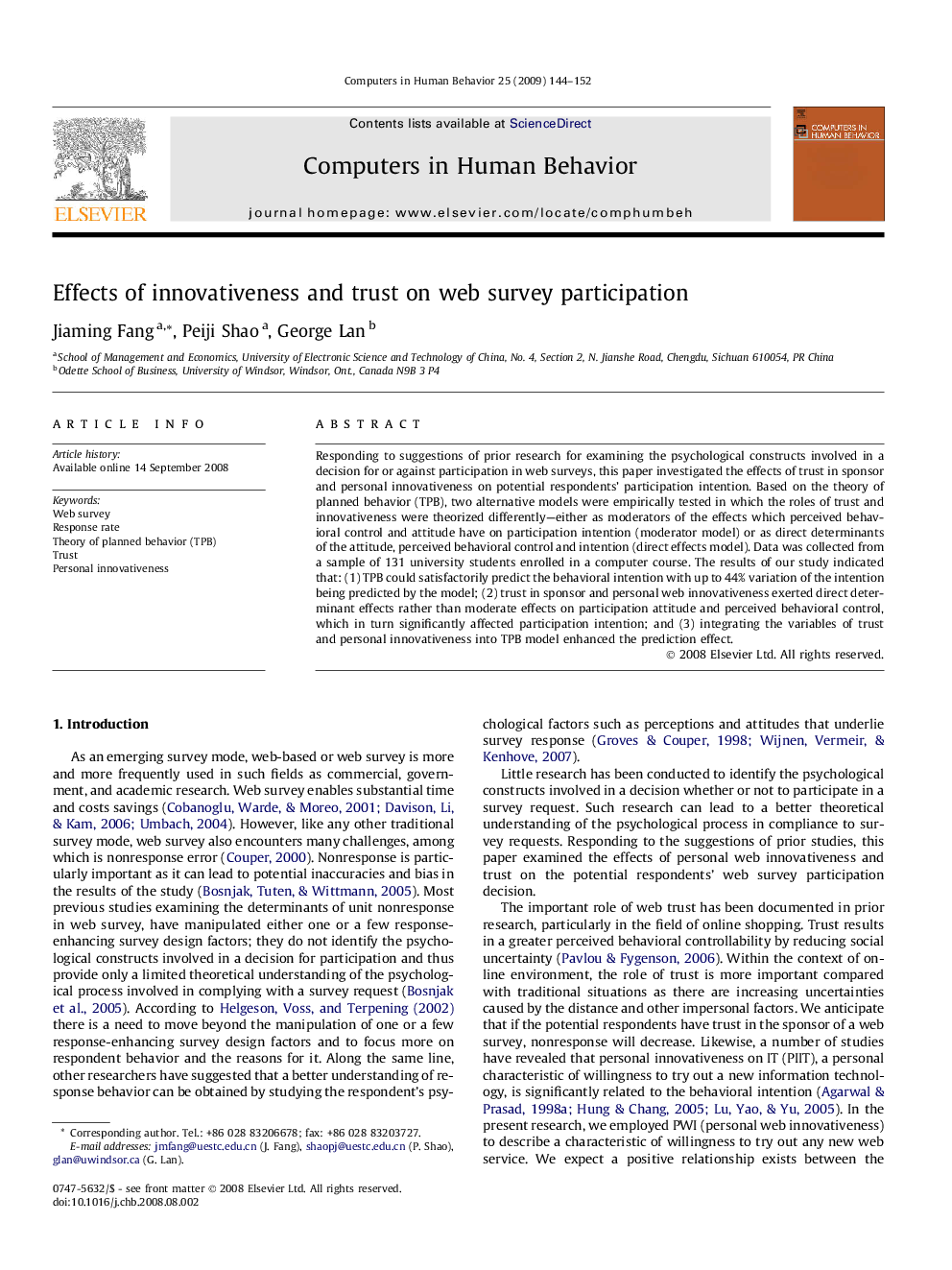| Article ID | Journal | Published Year | Pages | File Type |
|---|---|---|---|---|
| 352307 | Computers in Human Behavior | 2009 | 9 Pages |
Responding to suggestions of prior research for examining the psychological constructs involved in a decision for or against participation in web surveys, this paper investigated the effects of trust in sponsor and personal innovativeness on potential respondents’ participation intention. Based on the theory of planned behavior (TPB), two alternative models were empirically tested in which the roles of trust and innovativeness were theorized differently—either as moderators of the effects which perceived behavioral control and attitude have on participation intention (moderator model) or as direct determinants of the attitude, perceived behavioral control and intention (direct effects model). Data was collected from a sample of 131 university students enrolled in a computer course. The results of our study indicated that: (1) TPB could satisfactorily predict the behavioral intention with up to 44% variation of the intention being predicted by the model; (2) trust in sponsor and personal web innovativeness exerted direct determinant effects rather than moderate effects on participation attitude and perceived behavioral control, which in turn significantly affected participation intention; and (3) integrating the variables of trust and personal innovativeness into TPB model enhanced the prediction effect.
